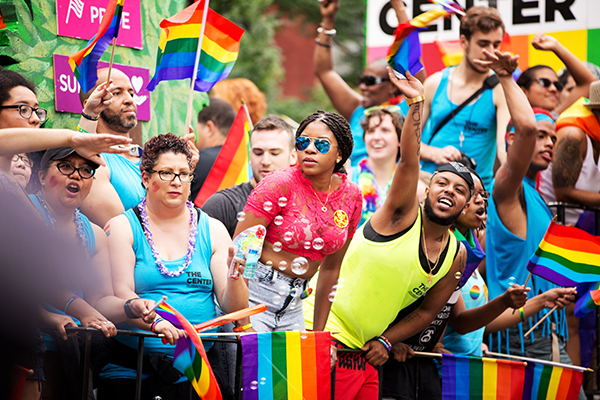Kim Davis, a Kentucky county clerk who refused to issue same-sex marriage licenses, had asked the court to reconsider its landmark 2015 opinion.
The Supreme Court on Monday turned down a request that it consider overturning its landmark decision to legalize same-sex marriage a decade ago.
The court, without comment, declined the petition, filed by Kim Davis, a former Kentucky county clerk who gained national attention in 2015 when she defied a court order and refused to issue same-sex licenses because of her religious beliefs.
She had asked the Supreme Court to reverse an order that required her to pay more than $300,000 to a couple denied a marriage license — and to overturn the same-sex marriage ruling from 2015.
At least four of the nine justices would have needed to vote to hear Ms. Davis’s case and revisit the marriage precedent, a major step that many legal experts had said they were not expecting the court to take.
Still, the justices’ consideration of Ms. Davis’s petition had set off alarms among gay Americans, who were already reeling from the Trump administration’s targeting of programs and funding that benefit L.G.B.T.Q. individuals.
Gay Americans and their allies had been on alert since the Supreme Court’s conservative majority eliminated the nationwide right to abortion after 50 years, showing a willingness to undo longstanding legal precedent. In that decision, Justice Clarence Thomas wrote separately to urge reconsideration of the Obergefell v. Hodges ruling, which recognized gay marriage nationwide.
Polls show that same-sex marriage now has broad public support. More than three dozen House Republicans helped pass legislation in 2022 that required states and the federal government to recognize the validity of same-sex marriages.
Mary Bonauto, the lawyer who argued the Obergefell case before the Supreme Court, praised the court’s action. “Today, millions of Americans can breathe a sigh of relief for their families, current or hoped for, because all families deserve equal rights under the law,” she said in a statement.
Ms. Davis became a symbol of religious opposition to same-sex marriage after the Supreme Court’s decision in 2015. She spent five nights in jail after she was found in contempt of court for defying a federal order to issue licenses to same-sex couples.
David Ermold and David Moore, a Kentucky couple, sued Ms. Davis after they had been refused a license and prevailed at trial in 2023. Ms. Davis was ordered to pay the couple $360,000 in damages and lawyers’ fees.
She appealed the judgment, claiming First Amendment protection from liability and asserted that the court had wrongly recognized a constitutional right to same-sex marriage and should reverse its decision in Obergefell.
The U.S. Court of Appeals for the Sixth Circuit ruled against Ms. Davis in March, citing a recent Supreme Court decision that found public officials acting in their official capacity are not protected by the First Amendment.
Public officials cannot “wield the authority of the state to violate the constitutional rights of citizens if the official believes she is ‘follow[ing] her conscience,’” wrote Judge Helene N. White, a nominee of President George W. Bush.
In a concurring opinion, Judge Chad Readler, a nominee of President Trump, quoted an earlier ruling that said Ms. Davis had taken “the law into her own hands.”
Mathew Staver, a lawyer for Ms. Davis, asserted that the Obergefell opinion was “egregiously wrong from the start” and said his organization, Liberty Counsel, would continue to work to reverse it.
“It is not a matter of if, but when the Supreme Court will overturn Obergefell,” he said in a statement.
(New York Times)















